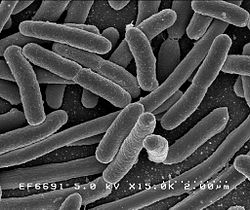 A new law in France just banned spanking of children, making it 52 countries in the world that ban spanking of children. Yet in the United States we go so far in the other direction that nineteen states still allow spanking and other forms of physical punishment in school. Of these 19 states, 15 expressly permit it while another four do not prohibit it. According to Federal data, more than 109,000 students were paddled, hit, or physically punished in some way in schools during 2013-2014. Seven Southern states account for 80 percent of in-school corporal punishment in the U.S.: Mississippi, Texas, Alabama, Arkansas, Georgia, Tennessee and Oklahoma.
A new law in France just banned spanking of children, making it 52 countries in the world that ban spanking of children. Yet in the United States we go so far in the other direction that nineteen states still allow spanking and other forms of physical punishment in school. Of these 19 states, 15 expressly permit it while another four do not prohibit it. According to Federal data, more than 109,000 students were paddled, hit, or physically punished in some way in schools during 2013-2014. Seven Southern states account for 80 percent of in-school corporal punishment in the U.S.: Mississippi, Texas, Alabama, Arkansas, Georgia, Tennessee and Oklahoma.
The National Association of School Psychologists explains corporal punishment as "the intentional infliction of pain or discomfort and/or the use of physical force upon a student with the intention of causing the student to experience bodily pain so as to correct or punish the student's behavior." In other words, it is a spanking, beating, paddling (hitting with a paddle!), or physical abuse.
Also, a recent study found that "black children are twice as likely as white children to be subject to corporal punishment" at school. This is partly because black children tend to live in states where such punishments are allowed, and also because black students are more likely to be singled out for corporal punishment by educators. In Mississippi, white students were physically disciplined at a rate of 4.7 beatings per every 100 students, but among black students, the rate was 8.1 per every 100 students.
Ironically, while Texas is one of the states that allows corporal punishment, research on spanking from the University of Texas (and Univ. of Michigan) found that: the more children are spanked, the more likely they are to defy their parents and to experience increased anti-social behavior, aggression, mental health problems, and cognitive difficulties. These findings are from reviewing 50 years of research on spanking. In other words, study after study found that spanking, corporal punishment, paddling, beatings, physical abuse, or whatever you want to call it - results in negative long-term effects. It causes harm. So why is the USA so damn backward in 2017 that this is still being practiced in schools? The place where children are supposed to be safe, where adults are supposed to be role models, where children are supposed to learn right from wrong. Eh...
From the Washington Post: The States Where Teachers Still Beat Kids
In America's South, the beatings will continue. A new study published today finds that seven Southern states account for 80 percent of in-school corporal punishment in the U.S.: Mississippi, Texas, Alabama, Arkansas, Georgia, Tennessee and Oklahoma. The research by Dick Startz, an economics professor at U.C. Santa Barbara, and released by the Brookings Institution's Brown Center used data from the Department of Education's Civil Rights Division to determine the breakdown.
Corporal punishment at school is illegal in 31 states. Of the 19 that technically allow it, many do not appear to practice it at all, according to Startz' numbers. But some states are use the practice relatively often. In Mississippi there were more than six instances of corporal punishment -- defined as "paddling, spanking, or other forms of physical punishment imposed on a student" -- for every 100 public school students during the 2011-2012 school year. In other words, one out of every 17 public school students in Mississippi can expect to get beaten by a school administrator during a typical school year.
The persistence of corporal punishment is schools is all the more puzzling when you consider the research: "Many studies have shown that physical punishment — including spanking, hitting and other means of causing pain — can lead to increased aggression, antisocial behavior, physical injury and mental health problems for children," the American Psychological Association wrote in 2012. The American Academy of Pediatrics "strongly opposes" the practice. So does the United Nations. These groups agree that the evidence is clear: beating children does far more harm than good.
From University of Texas News: Risks of Harm from Spanking Confirmed by Analysis of Five Decades of Research
The more children are spanked, the more likely they are to defy their parents and to experience increased anti-social behavior, aggression, mental health problems and cognitive difficulties, according to a new meta-analysis of 50 years of research on spanking by experts at The University of Texas at Austin and the University of Michigan. The study, published in this month’s Journal of Family Psychology, looks at five decades of research involving over 160,000 children.
Gershoff and co-author Andrew Grogan-Kaylor, an associate professor at the University of Michigan School of Social Work, found that spanking (defined as an open-handed hit on the behind or extremities) was significantly linked with 13 of the 17 outcomes they examined, all in the direction of detrimental outcomes. “The upshot of the study is that spanking increases the likelihood of a wide variety of undesired outcomes for children. Spanking thus does the opposite of what parents usually want it to do,” Grogan-Kaylor says.
Gershoff and Grogan-Kaylor tested for some long-term effects among adults who were spanked as children. The more they were spanked, the more likely they were to exhibit anti-social behavior and to experience mental health problems. They were also more likely to support physical punishment for their own children, which highlights one of the key ways that attitudes toward physical punishment are passed from generation to generation. The researchers looked at a wide range of studies and noted that spanking was associated with negative outcomes consistently and across all types of studies....
 Worried about whether being physically active just on weekends can make a difference in health if the rest of the week is spent sitting all day? Well, there is good news! Being a "weekend warrior" (one who exercises or is active only one or two days a week) may also offer health benefits according to a new study (associated with lower death rates from all causes, cancer, and cardiovascular disease).
Worried about whether being physically active just on weekends can make a difference in health if the rest of the week is spent sitting all day? Well, there is good news! Being a "weekend warrior" (one who exercises or is active only one or two days a week) may also offer health benefits according to a new study (associated with lower death rates from all causes, cancer, and cardiovascular disease).
 A few days ago the CDC (Centers for Disease Control and Prevention) released
A few days ago the CDC (Centers for Disease Control and Prevention) released  Drawing of colon seen from front (the appendix is colored red).
Drawing of colon seen from front (the appendix is colored red).  Another large study looking at screening mammograms for breast cancer has raised the issue of overdiagnosis and overtreatment once again. The purpose of mammography screening is to find cancer when it is small and so prevent cancer from growing and becoming advanced cancer. However, the researchers did not find this - there was a major increase in finding small cancers (the kind that may grow so slowly as to never cause any problems or that may even regress), but the rate of advanced cancers stayed the same.
Another large study looking at screening mammograms for breast cancer has raised the issue of overdiagnosis and overtreatment once again. The purpose of mammography screening is to find cancer when it is small and so prevent cancer from growing and becoming advanced cancer. However, the researchers did not find this - there was a major increase in finding small cancers (the kind that may grow so slowly as to never cause any problems or that may even regress), but the rate of advanced cancers stayed the same. I saw mention of this study in a number of places - that low vitamin D levels are linked to chronic headaches. A little too soon to know if that is really true - the researchers in this study looked at the blood vitamin D levels of 2601 men just
I saw mention of this study in a number of places - that low vitamin D levels are linked to chronic headaches. A little too soon to know if that is really true - the researchers in this study looked at the blood vitamin D levels of 2601 men just  Another large study has found negative health effects from living close to high-traffic roadways - this time a higher risk of dementia. The closer to the heavy traffic road, the higher the risk - with the highest risk in people living
Another large study has found negative health effects from living close to high-traffic roadways - this time a higher risk of dementia. The closer to the heavy traffic road, the higher the risk - with the highest risk in people living  A new law in France just banned spanking of children, making it 52 countries in the world that ban spanking of children. Yet in the United States we go so far in the other direction that nineteen states still allow spanking and other forms of physical punishment in school. Of these 19 states, 15 expressly permit it while another four do not prohibit it. According to
A new law in France just banned spanking of children, making it 52 countries in the world that ban spanking of children. Yet in the United States we go so far in the other direction that nineteen states still allow spanking and other forms of physical punishment in school. Of these 19 states, 15 expressly permit it while another four do not prohibit it. According to  The beginning of a new year is a time to think about the future, and perhaps think about healthy lifestyles and how to age well. One important issue to think about is: why do some older people have "young" minds while others do not? Can anything be done to improve our odds later in life of being a "superager" and having a youthful, sharp, clear mind?
The beginning of a new year is a time to think about the future, and perhaps think about healthy lifestyles and how to age well. One important issue to think about is: why do some older people have "young" minds while others do not? Can anything be done to improve our odds later in life of being a "superager" and having a youthful, sharp, clear mind?